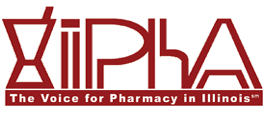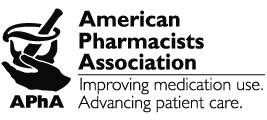Recent Blog Posts
Fighting a Medicare or Medicaid Revocation
 In today’s litigious society, doctors often have to worry about medical malpractice claims. The high cost of malpractice insurance to protect a physician and their practice is one of the factors that drives the high cost of healthcare. Although focused on malpractice concerns, worrying about accusations for Medicare or Medicaid fraud is not something that a physician usually concerns themselves with, yet these accusations occur much more often than you may realize.
In today’s litigious society, doctors often have to worry about medical malpractice claims. The high cost of malpractice insurance to protect a physician and their practice is one of the factors that drives the high cost of healthcare. Although focused on malpractice concerns, worrying about accusations for Medicare or Medicaid fraud is not something that a physician usually concerns themselves with, yet these accusations occur much more often than you may realize.
Medicare Fraud Accusations
The False Claims Act was enacted to protect these programs from the filing of false claims. A physician can be accused of fraud for false claims if the Office of Inspector General (OIG) feels that physician knew or should have known the claims were not valid. Under this law, a physician can be held legally liable even if they had no idea their office was submitting fraudulent claims with Medicare or Medicaid. If the OIG finds the physician guilty, that physician can receive a fine of $11,000 for every incorrect or fraudulent item billed to the government.
Healthcare Audits and Investigations in Illinois
 Hearing the word “audit” can trigger a stressful reaction, no matter what entity is conducting the audit. One of those entities is the Illinois Office of Inspector General. Receiving notification that your medical practice is under an audit or investigation by IG could result in severe consequences without the experienced and skilled representation of an Illinois medical license defense attorney.
Hearing the word “audit” can trigger a stressful reaction, no matter what entity is conducting the audit. One of those entities is the Illinois Office of Inspector General. Receiving notification that your medical practice is under an audit or investigation by IG could result in severe consequences without the experienced and skilled representation of an Illinois medical license defense attorney.
Is There a Difference Between a Healthcare Audit and a Healthcare Investigation?
The two terms are often misunderstood to mean the same thing but there are specific differences between the two. A healthcare audit examines the behaviors and actions of the medical practice when it comes to the financial side of things. An audit will examine what the practice is issuing charges for, how funds are being spent, and if there is cohesiveness with all of these figures.
Why Pharmacies Should Only Use VAWD-Certified Drug Wholesalers
 In 2004, the National Association of Boards of Pharmacy (NABP) established the Verified-Accredited Wholesale Distributors (VAWD) process in order to keep the country’s supply of prescription drugs and medical devices safe from counterfeit products. The NABP process is a rigorous one. In order to receive VAWD-certification, a drug wholesale company must show that they have a legitimate operation, their license is in good standing, they have employees, and utilize best practices when it comes to handling, storing, and shipping prescription drugs and medical devices.
In 2004, the National Association of Boards of Pharmacy (NABP) established the Verified-Accredited Wholesale Distributors (VAWD) process in order to keep the country’s supply of prescription drugs and medical devices safe from counterfeit products. The NABP process is a rigorous one. In order to receive VAWD-certification, a drug wholesale company must show that they have a legitimate operation, their license is in good standing, they have employees, and utilize best practices when it comes to handling, storing, and shipping prescription drugs and medical devices.
It is in a pharmacy’s best interests – as well as their customers’ – to always purchase medications and devices from a VAWD-certified company. Although it may be tempting to purchase from a secondary wholesaler because it has lower prices than an accredited company, you have no idea where the products are coming from or how the company operates since there is no oversight. Recent events emphasize just how dangerous this can be.
Responding to an IDFPR Complaint Notice
 Receiving a formal notice of complaint from the Illinois Department of Financial and Professional Regulation (IDFPR) can feel overwhelming, no matter what profession you are in. A formal complaint can have devastating repercussions – not only on your reputation, but on your entire career and livelihood. Regardless of whether the notice is about a minor disciplinary action or threats of suspension or revocation of your license, it is critical to consult with an Illinois professional license defense attorney immediately.
Receiving a formal notice of complaint from the Illinois Department of Financial and Professional Regulation (IDFPR) can feel overwhelming, no matter what profession you are in. A formal complaint can have devastating repercussions – not only on your reputation, but on your entire career and livelihood. Regardless of whether the notice is about a minor disciplinary action or threats of suspension or revocation of your license, it is critical to consult with an Illinois professional license defense attorney immediately.
You Have Received the Notice. Now What?
When an Illinois professional board receives a complaint – whether it is the medical, nursing, pharmacy, dental, real estate, or any other professional board – it will determine if it has the proper jurisdiction. If it does, then the board will initiate a formal investigation. The licensee who is being investigated will be sent a formal notice in writing, advising them of the complaint and investigation.
Two Illinois Doctors Indicted by DEA for Operating Pill Mill
 The Drug Enforcement Administration (DEA) – Chicago Division, along with the U.S. Attorney for the Northern District of Illinois recently announced that two Illinois doctors were indicted on federal criminal charges for allegedly prescribing opioids to patients who did not have a legitimate medical reason for the drugs.
The Drug Enforcement Administration (DEA) – Chicago Division, along with the U.S. Attorney for the Northern District of Illinois recently announced that two Illinois doctors were indicted on federal criminal charges for allegedly prescribing opioids to patients who did not have a legitimate medical reason for the drugs.
The Indictments
According to the information released by the DEA, one of the physicians charged managed a medical practice in Melrose Park and the second physician was employed there. The indictments allege that between 2015 and 2020, the doctors dispensed fentanyl, hydrocodone, oxycodone, and other controlled substances to patients who came to the practice but that no physical exams or diagnostic tests were performed on these patients in order to confirm what medical needs the patients had for these drugs.
The doctors are also accused of causing pharmacies to submit many claims to Medicare and Medicaid for prescriptions that were allegedly improperly prescribed.
Fraud Alert: Scammers Targeting Medical License Holders
 Over the last few months, federal and state agencies across the country have issued warnings to health care professionals who hold various licenses to watch out for phone calls and letters from scammers claiming to be from state medical boards, claiming the person’s medical license has been suspended. The FBI and other law enforcement agencies are currently investigating these alleged scams. If you have been contacted by someone claiming to be from the Illinois Medical Board threatening that your license is in jeopardy, it is important to contact an Illinois professional license defense attorney right away.
Over the last few months, federal and state agencies across the country have issued warnings to health care professionals who hold various licenses to watch out for phone calls and letters from scammers claiming to be from state medical boards, claiming the person’s medical license has been suspended. The FBI and other law enforcement agencies are currently investigating these alleged scams. If you have been contacted by someone claiming to be from the Illinois Medical Board threatening that your license is in jeopardy, it is important to contact an Illinois professional license defense attorney right away.
Details of the Scam
According to details released by law enforcement, the scammers will contact a health professional usually by phone. The call appears to be legitimate to the recipient because the scammers have been able to alter the phone number on the person’s caller ID so that it appears that the call is actually coming in from the state’s medical board.
FSMB: Medical Professionals Risk Losing License for Spreading False COVID-19 Vaccine Info
 There is no doubt that the country is deeply divided over just how serious COVID-19 is and what steps should be taken to mitigate the spread of the virus. There is intense debate over vaccines, masks, and social distancing, with much of that debate raging over social media platforms. Unfortunately, there has been an avalanche of misinformation and disinformation posted on these platforms about the virus. Some of this information comes directly from physicians, nurses, and other medical professionals. All of this misinformation has prompted the Federation of State Medical Boards (FSMB) to announce that any healthcare professional who spreads COVID-19 misinformation is at risk of losing their medical license.
There is no doubt that the country is deeply divided over just how serious COVID-19 is and what steps should be taken to mitigate the spread of the virus. There is intense debate over vaccines, masks, and social distancing, with much of that debate raging over social media platforms. Unfortunately, there has been an avalanche of misinformation and disinformation posted on these platforms about the virus. Some of this information comes directly from physicians, nurses, and other medical professionals. All of this misinformation has prompted the Federation of State Medical Boards (FSMB) to announce that any healthcare professional who spreads COVID-19 misinformation is at risk of losing their medical license.
The Federation of State Medical Boards
The FSMB is a nonprofit organization that represents 71 state medical and osteopathic boards in the United States. The organization provides education, data, assessment, and research to medical boards, while also focusing on initiatives and services that promote regulatory best practices, quality health care, and patient safety. The FSMB also co-sponsors the United States Medical Licensing Examination.
Requirements of a Nurse Practitioner in Illinois
 A nurse practitioner is one type of advanced practice registered nurse. In order to be licensed as a nurse practitioner, you are required to have additional education, training, and certification. Traditionally, nurse practitioners could be found at medical facilities such as urgent care clinics, but today, more and more patients are turning to nurse practitioners for their primary healthcare needs. Here in Illinois, the number of nurse practitioners have tripled over the past ten years and now number over 12,000.
A nurse practitioner is one type of advanced practice registered nurse. In order to be licensed as a nurse practitioner, you are required to have additional education, training, and certification. Traditionally, nurse practitioners could be found at medical facilities such as urgent care clinics, but today, more and more patients are turning to nurse practitioners for their primary healthcare needs. Here in Illinois, the number of nurse practitioners have tripled over the past ten years and now number over 12,000.
At one time, nurse practitioners were always required to enter into a collaborative practice agreement with a physician, but that changed a few years ago when the state of Illinois passed a law allowing advanced practice registered nurses to practice independently of doctors. However, there are stringent requirements that must be met in order for them to do so.
Defending Against Accusations of Healthcare Fraud
 The shutdowns of the COVID-19 pandemic resulted in multiple federal programs to help businesses and individuals survive financially. Some of these resources included the Economic Injury Disaster Loan program, Paycheck Protection Program, and the Pandemic Emergency Unemployment Compensation. Over the last several months, the U.S. Department of Justice (DOJ) has announced indictments of multiple cases of fraud against parties who allegedly benefitted from these programs illegally. Recently, the DOJ announced another area of pandemic fraud they will be targeting – healthcare fraud.
The shutdowns of the COVID-19 pandemic resulted in multiple federal programs to help businesses and individuals survive financially. Some of these resources included the Economic Injury Disaster Loan program, Paycheck Protection Program, and the Pandemic Emergency Unemployment Compensation. Over the last several months, the U.S. Department of Justice (DOJ) has announced indictments of multiple cases of fraud against parties who allegedly benefitted from these programs illegally. Recently, the DOJ announced another area of pandemic fraud they will be targeting – healthcare fraud.
Multiple Indictments
The DOJ issued their warning to all healthcare providers across the country that submitting claims for COVID-19-related testing and healthcare services that are false could result in criminal charges. Over the past couple of months, the DOJ has filed criminal charges against more than a dozen people in multiple states for submitting false claims. The total amount of these alleged false claims totals more than $143 million. Some of the alleged criminal acts charged in these indictments include fake testing, money laundering, and wire fraud.
Potential Legal Issues Healthcare Professionals May Face When Certifying Patients for Medical Marijuana
 In 2013, the state of Illinois passed the Compassionate Use Act, which allowed the use of medical marijuana for patients suffering from certain medical conditions who received certification from their physician. In 2019, the state amended the law to also include certification by advanced practice registered nurses (APRN) and other healthcare professionals other than physicians. The law has specific guidelines that healthcare professionals must abide by when issuing medical marijuana recommendations to patients and failure to follow these rules could result in disciplinary action by the Illinois Medical Board and/or other consequences.
In 2013, the state of Illinois passed the Compassionate Use Act, which allowed the use of medical marijuana for patients suffering from certain medical conditions who received certification from their physician. In 2019, the state amended the law to also include certification by advanced practice registered nurses (APRN) and other healthcare professionals other than physicians. The law has specific guidelines that healthcare professionals must abide by when issuing medical marijuana recommendations to patients and failure to follow these rules could result in disciplinary action by the Illinois Medical Board and/or other consequences.
Certifying Patients
Healthcare professionals who certify patients for medical marijuana use already walk a fine line with federal marijuana laws. It is illegal for a doctor or any other medical professional to prescribe cannabis in any form to a patient under federal law because of its classification as a Schedule 1 drug and, under the current federal law, prescribing marijuana for a patient could be deemed aiding and abetting the patient in obtaining the drug.














